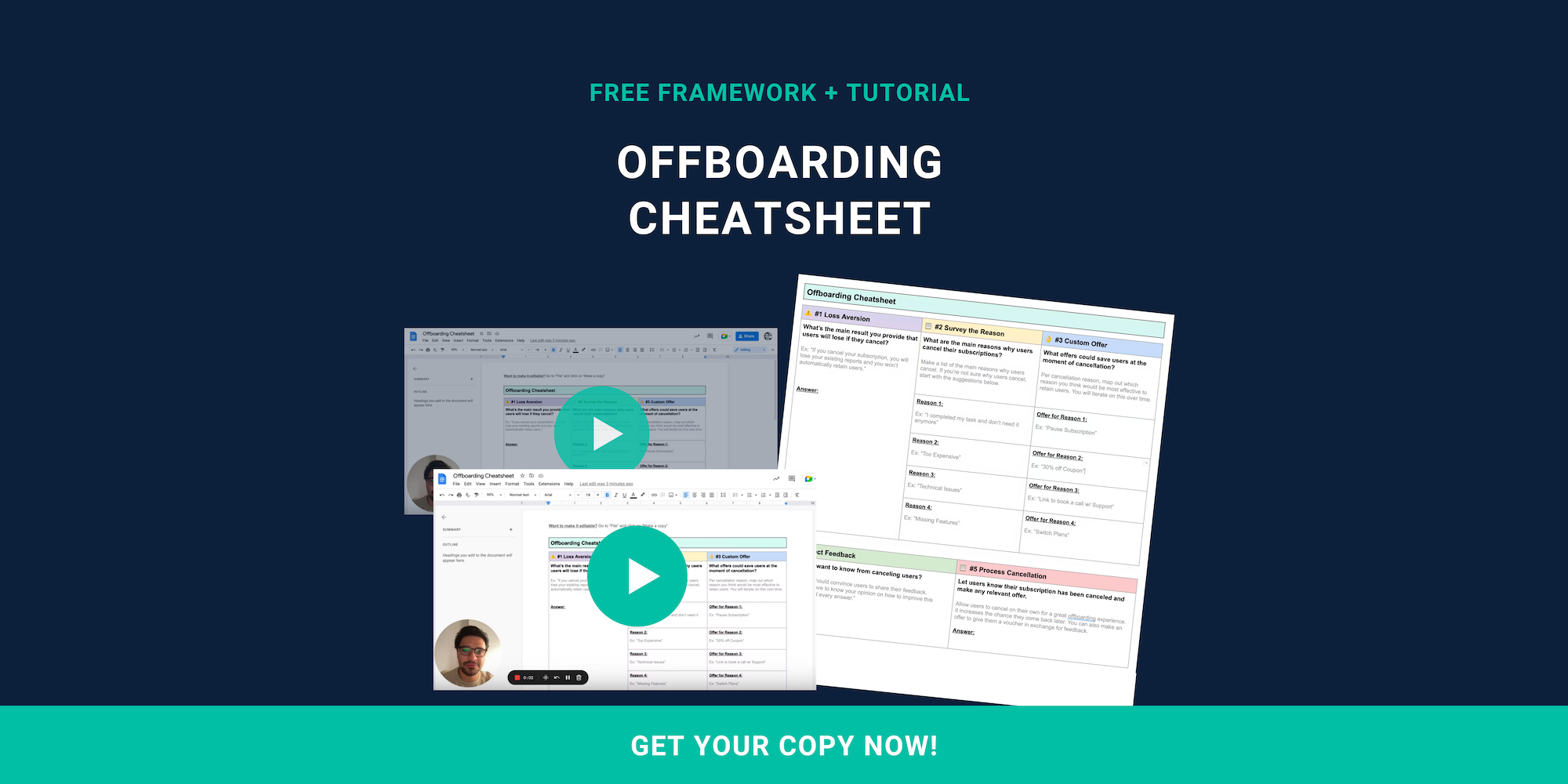What is revenue run rate?
Revenue Run Rate is the annualized value of your current monthly recurring revenue (MRR).
To calculate your Revenue Run Rate in SaaS, you just have to multiply your MRR by 12.
What is the revenue run rate formula?
Trying to estimate your SaaS revenue for next year? Use the revenue run rate formula.
Annual Revenue Run Rate = Revenue In Period x Number Of Periods In The Year
By default, in SaaS a “Period” equals 1 month, which makes the formula:
Annual Revenue Run Rate = Monthly Recurring Revenue x 12 months
However, the same logic could be applied to any given period. You could also use the following:
ARRR = Weekly Recurring Revenue x 52 weeks
Or
ARRR = Quarter Recurring Revenue x 4 quarters
Revenue Run Rate Example
If a SaaS company had $10,000 of revenue in April, you would just need to multiply this figure by 12 to reach the annual run rate.
Annual Revenue Run Rate = $10,000 x 12 = $120,000
What’s the problem with Revenue Run Rate as a metric?
Calculating your run rate is easy. However, the simplicity of this formula does come with one major downside:
It assumes that revenue is flat and always the same across the whole year.
In practice, this is never the case.
This metric is most flawed when businesses have at least one of these:
- Seasonal sales.
- Customer churn (we can help you solve this).
- Expiring contracts.
When you estimate your run rate, you fail to account for variables such as customer churn and expansion revenue.
With this in mind, you should remember that this metric has the potential to produce inaccurate estimations.
Why is calculating run rate important?
Despite this shortcoming, the revenue run rate formula can still be valuable for SaaS entrepreneurs and investors.
Here are just a few reasons why you may use the revenue run rate formula:
- You want to estimate your company's future revenue.
- You need to create financial projections for your SaaS business.
- You want to compare the run rates of different SaaS companies.
- You're calculating how much money you need to raise from investors.
When is the run rate formula useful?
The run rate formula is most useful when you have a relatively small amount of data to work with.
This calculation can give you an idea of how your business may grow in the future. We recommend SaaS companies use this metric alongside a wide range of other performance indicators.
Solely relying on your revenue run rate to indicate performance is risky. As we've outlined, there are several limitations to this calculation.
To ensure all your SaaS metrics are strong, you must have access to robust tools and solutions that are designed to reduce churn.
If you would like to preview a Raaft retention flow, you can schedule your demo. If you’re ready to get started and take steps to improve your SaaS revenue run rate, you can try Raaft for free today.

Offboarding Cheatsheet
This framework + video tutorial will help you design a better cancellation process.
Some of our featured articles

Miguel Marques

Miguel Marques

Miguel Marques
Customer Success insights in your inbox
Helping Founders and Customer Success Managers handle customer retention effectively.
We will only ever send you relevant content. Unsubscribe anytime.


